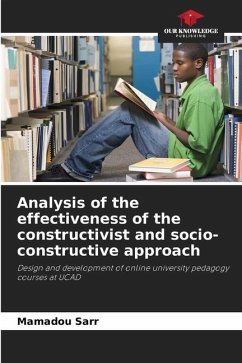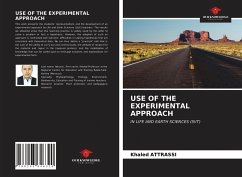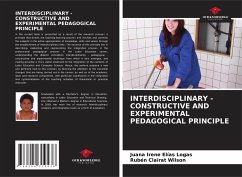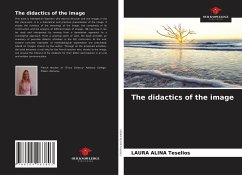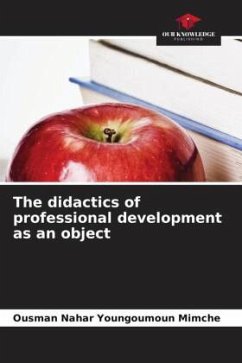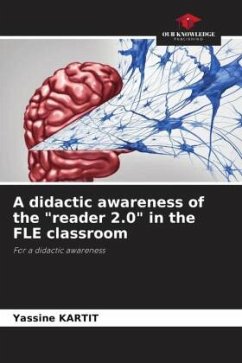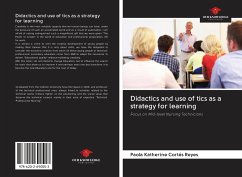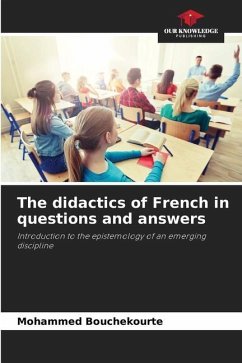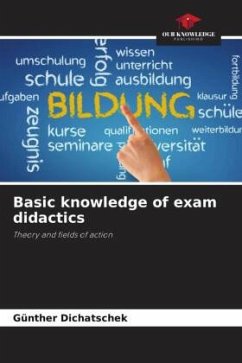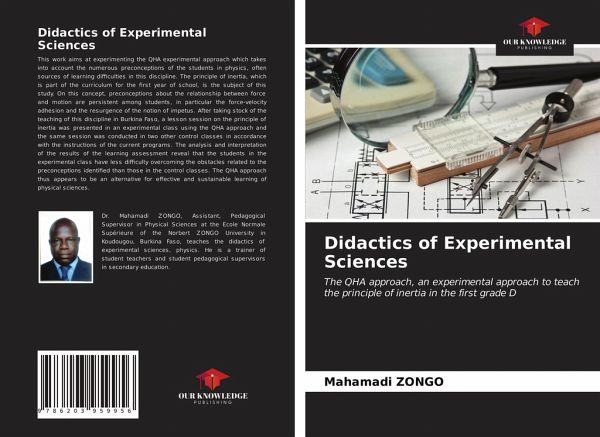
Didactics of Experimental Sciences
The QHA approach, an experimental approach to teach the principle of inertia in the first grade D
Versandkostenfrei!
Versandfertig in 6-10 Tagen
36,99 €
inkl. MwSt.

PAYBACK Punkte
18 °P sammeln!
This work aims at experimenting the QHA experimental approach which takes into account the numerous preconceptions of the students in physics, often sources of learning difficulties in this discipline. The principle of inertia, which is part of the curriculum for the first year of school, is the subject of this study. On this concept, preconceptions about the relationship between force and motion are persistent among students, in particular the force-velocity adhesion and the resurgence of the notion of impetus. After taking stock of the teaching of this discipline in Burkina Faso, a lesson se...
This work aims at experimenting the QHA experimental approach which takes into account the numerous preconceptions of the students in physics, often sources of learning difficulties in this discipline. The principle of inertia, which is part of the curriculum for the first year of school, is the subject of this study. On this concept, preconceptions about the relationship between force and motion are persistent among students, in particular the force-velocity adhesion and the resurgence of the notion of impetus. After taking stock of the teaching of this discipline in Burkina Faso, a lesson session on the principle of inertia was presented in an experimental class using the QHA approach and the same session was conducted in two other control classes in accordance with the instructions of the current programs. The analysis and interpretation of the results of the learning assessment reveal that the students in the experimental class have less difficulty overcoming the obstacles related to the preconceptions identified than those in the control classes. The QHA approach thus appears to be an alternative for effective and sustainable learning of physical sciences.



